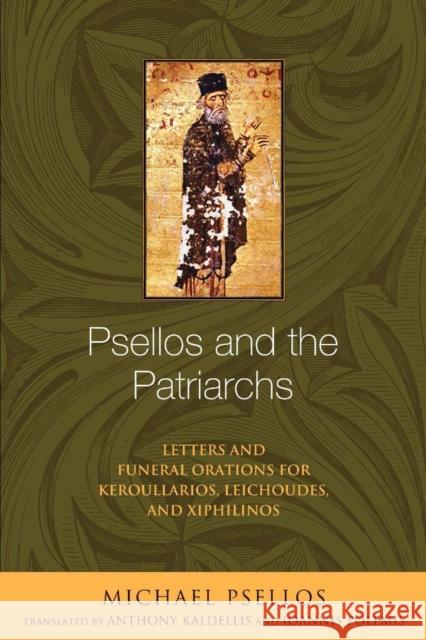Psellos and the Patriarchs: Letters and Funeral Orations for Keroullarios, Leichoudes, and Xiphilinos » książka
Psellos and the Patriarchs: Letters and Funeral Orations for Keroullarios, Leichoudes, and Xiphilinos
ISBN-13: 9780268033286 / Angielski / Miękka / 2015 / 252 str.
Psellos and the Patriarchs: Letters and Funeral Orations for Keroullarios, Leichoudes, and Xiphilinos
ISBN-13: 9780268033286 / Angielski / Miękka / 2015 / 252 str.
(netto: 130,03 VAT: 5%)
Najniższa cena z 30 dni: 135,14
ok. 30 dni roboczych.
Darmowa dostawa!
Psellos and the Patriarchs: Letters and Funeral Orations for Keroullarios, Leichoudes, and Xiphilinos contains translations of the funeral orations written by Michael Psellos, the leading Byzantine intellectual of the eleventh century, for the three ecumenical patriarchs of Constantinople whom he knew best: Michael Keroullarios (1043-1058), Konstantinos Leichoudes (1059-1063), and Ioannes Xiphilinos (1064-1075). The orations are significant sources for the lives and reputations of these patriarchs; they are also a prime source for the educational reforms made by the emperor Konstantinos IX Monomachos in the mid-1040s, and for many events of that turbulent century that Psellos witnessed, including popular uprisings, plots, civil wars, and the battle with the Catholic legates in 1054. Never before translated into English, the orations and letters are introduced by a detailed analysis of Psellos' historical relationships with the patriarchs and an interpretation of the works.
The orations are not only important historical sources: they are crucial specimens of Byzantine rhetoric in a period of transition, as well as being key texts in the corpus of Psellos himself. Psellos used them to score important points in support of his own philosophical agenda and to make broader claims about ethics and metaphysics and the role of learning in political and ecclesiastical life. The orations are here accompanied by translations of a long letter that Psellos wrote to Keroullarios and a pair of letters to Xiphilinos, in which he defended key aspects of his philosophical project. "This volume of translations, by two of the best contemporary experts on Psellos and his times, is an important addition to a growing body of scholarship on Byzantium in the eleventh century. Because of the four personalities involved, Psellos and the Patriarchs is an extremely valuable source for historians; it provides a wealth of material on such topics as the secular and ecclesiastical careers of leading intellectuals; relations between patriarch and emperor; the functioning of rhetoric at the highest levels in society; and not least, the personality, character, and literary prowess of Psellos himself." --John Duffy, Dumbarton Oaks Professor of Byzantine Philology and Literature, Emeritus, Harvard University










